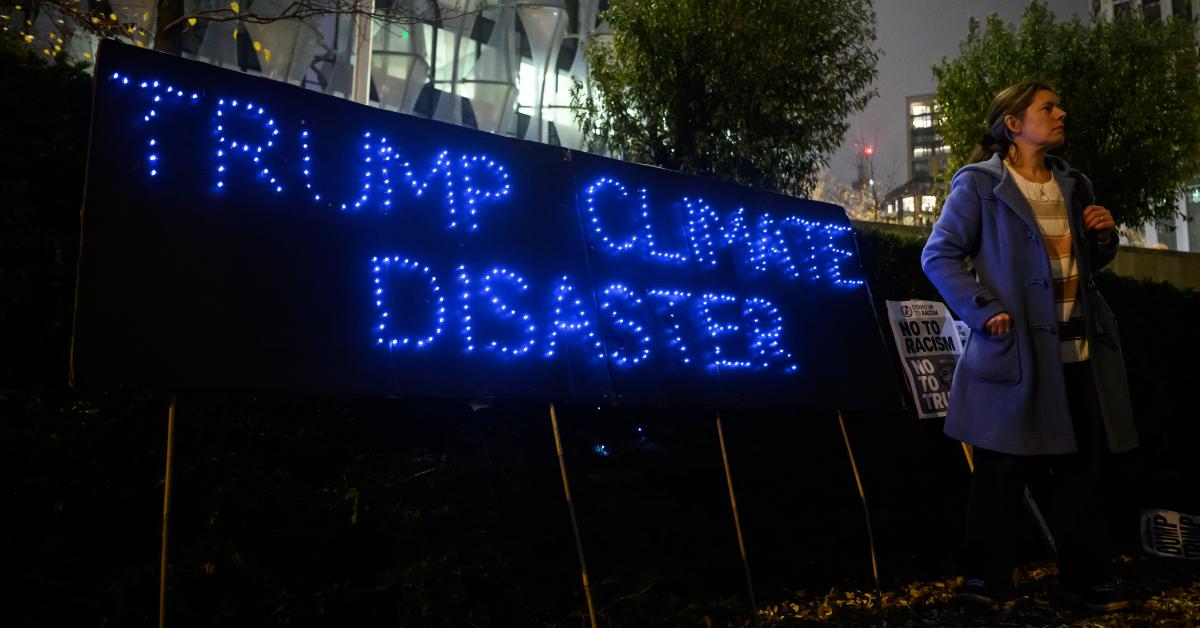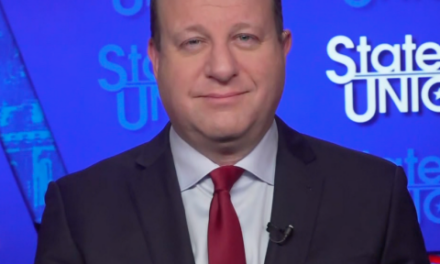We support our Publishers and Content Creators. You can view this story on their website by CLICKING HERE.

Kamala Harris hoped to secure the White House with a platform that vaguely appeared moderate on one hand, while cozying up to radical climate activists on the other.
Donald Trump has repeatedly called climate change a “hoax,” something Democrats hammered the Republican candidate on for years, and promised voters America would “drill, baby, drill” if returned to the White House.
Trump’s resounding victory Tuesday night made clear his position on energy and climate resonated with many voters and did not dissuade others from voting for him, despite Democrats’ insistence that Trump’s position is the wrong one.
“Trump and people like me are on the same wavelength. We got our radar love,” Steve Milloy, a senior legal fellow with the Energy and Environmental Legal Institute and publisher of “JunkScience.com,” told Just the News.
No climate voter
For those voters who see climate change as the central issue of our time, the election outcome was devastating.
“America is a failed Democracy. Our media failed us, our institutions failed us, our people failed us. Worst of all, we now pose a major threat to our planet,” celebrity climate scientist Micheal Mann posted on X.
Nathaniel Stinnett, founder of the Environmental Voter Project, which tries to get voters to support climate-friendly candidates, told The Guardian that the election outcome was a wake up call — not to reconsider the issue, but to advocate for it harder.
“The climate movement urgently needs more political power because the climate crisis is moving infinitely faster than our politics right now. We must work every day to build an unstoppable bloc of climate voters because we’re running out of time,” Stinnett said.
Writing on his The Honest Broker Substack, Dr. Roger Pielke Jr., retired professor of environmental studies at the University of Colorado at Boulder, argued that there’s no such thing as a climate voter.
“There is an opportunity for Democrats to take a good hard look at the past eight years and think about doing things differently,” Pielke, who was supportive of the Harris campaign and predicted she’d win the election, wrote.
Writing in the Free Press, political scientist and commentator Ruy Teixeira argued that getting rid of fossil fuels and the Green New Deal were terrible ideas that voters weren’t particularly interested in. Progressives’ insistence on focusing on these issues and demanding they not be questioned has harmed them, he explained.
“According to the progressive view, people resist rapidly eliminating fossil fuels only because of propaganda from the fossil fuel industry,” Teixeira wrote. Citing recent polls, Teixeira showed that two-thirds of voters are in favor of increasing domestic production of oil and gas, and most voters support an “all of the above” approach to transitioning the energy system.
“Voters clearly aren’t buying what progressives are selling on energy and climate. Not even close. And that’s another big reason the progressive moment has come to an end,” he wrote.
Happy industry
For the oil and gas industry, Trump’s victory brings to a close four years of regulatory hostility. The news of Trump’s victory, Barron’s reports, sent oil stocks up. Meanwhile, clean energy stocks fell.
“For the next four years it will be nice not to wake up every morning and think, ‘What bad thing will they do to our industry today?’” the U.S. Oil and Gas Association posted on X Wednesday morning.
Energy analyst David Blackmon, who publishes his work on his Energy Absurdities Substack, said he’s hearing a lot of optimism from the people in the industry he’s speaking to after the election.
“This is an industry whose people have been condescended to, lectured on how evil and bad they are for the environment, and told they’re in a dying industry with limited careers,” Blackmon told Just the News.
However, he added, not everyone in the industry voted for Trump. Contrary to popular belief, he said, there are many Democrats in the industry who aren’t particularly happy from a political perspective with Trump’s victory.
Milloy said while Trump dismisses the climate agenda, the problem with rolling back that agenda is the people whose politics are between the radical activists and Trump, which includes plenty of conservatives. As an example, he pointed to Rep. John Curtis, R-Utah, who is part of the Conservative Climate Caucus. While the group isn’t hostile to fossil fuels, they are still supportive of efforts to reduce greenhouse gas emissions, including carbon capture. Milloy said this middle group will make it harder to undo the damage of Biden’s radical climate agenda.
“Maybe you’ve got some energy guys and they’re for selling more energy, which is great. I’m all for that. But there’s more that needs to be fixed, and we need to make sure that we have good appointees that understand the issues and are going to get the job done,” Milloy said.
Blackmon said Trump’s promise to lower energy costs will have to contend with the reality of economics. Oil and gas prices can only go so low before companies begin holding back on the rig counts to remain profitable. Likewise, Blackmon said, there’s a lag time before policy and outcomes.
“If consumers are thinking this election means they’re going to have immediate lower prices at the gas pump, that’s not going to happen. Although it’s something that could come about just because of market dynamics,” Blackmon said.
While there are limitations to what Trump can do and disagreement among Republicans about what should be done, the success of the Trump campaign shows that voters are buying Democrats’ climate agenda and the issue is in for a big course correction in the next four years.

 Conservative
Conservative  Search
Search Trending
Trending Current News
Current News 





